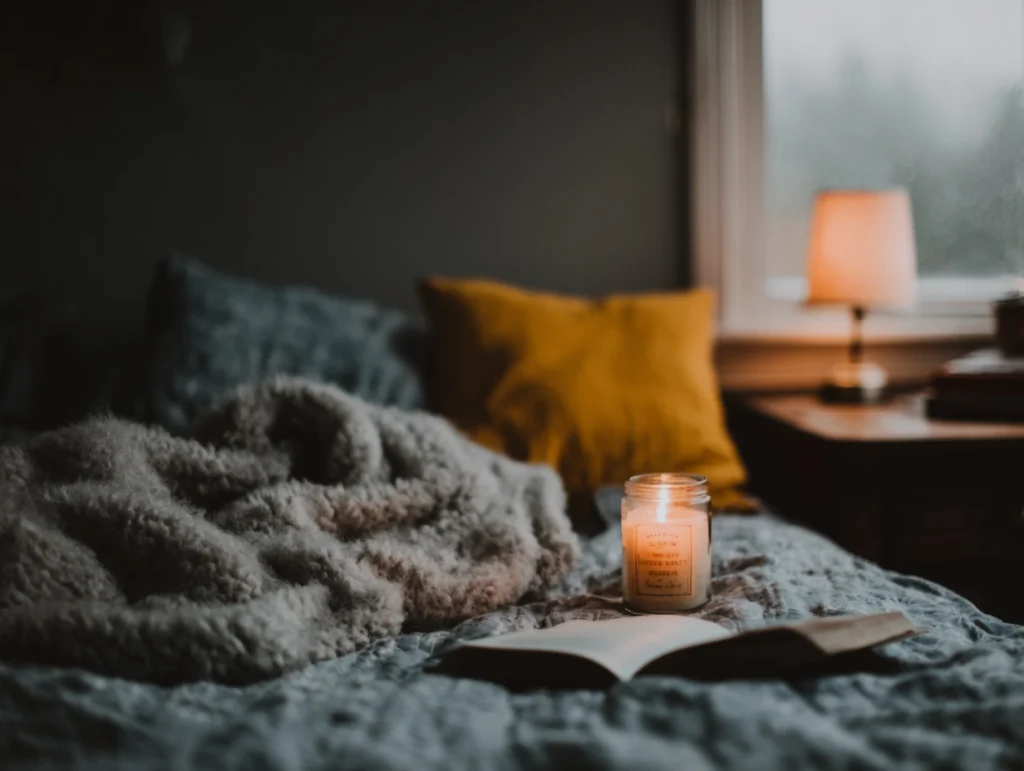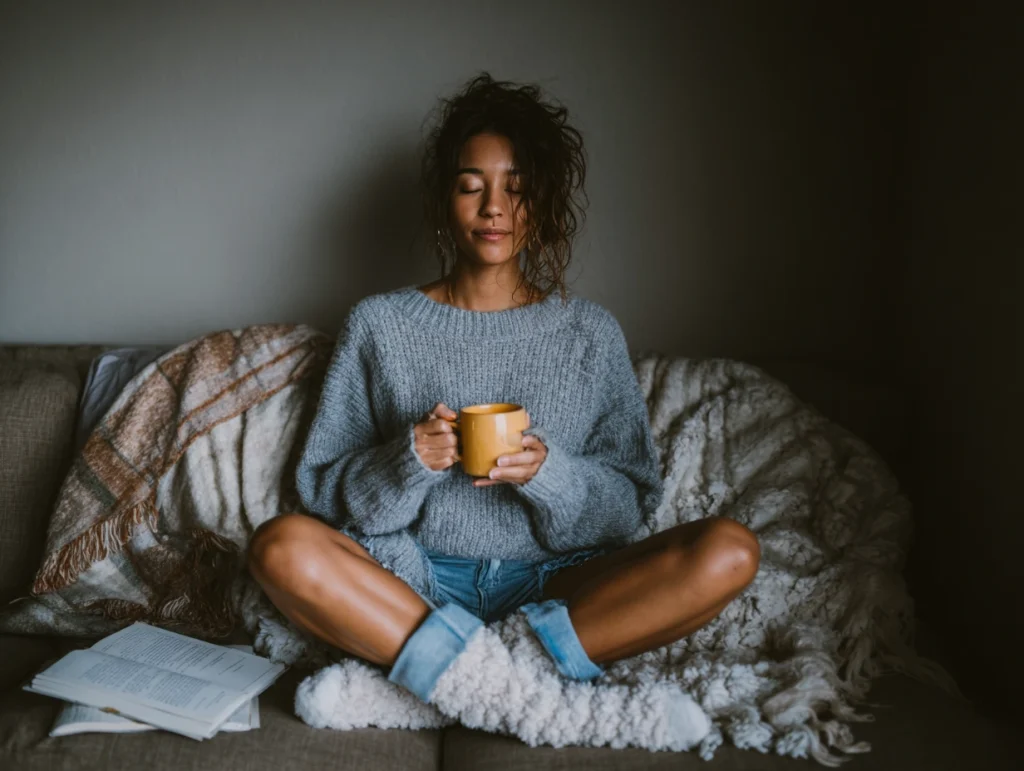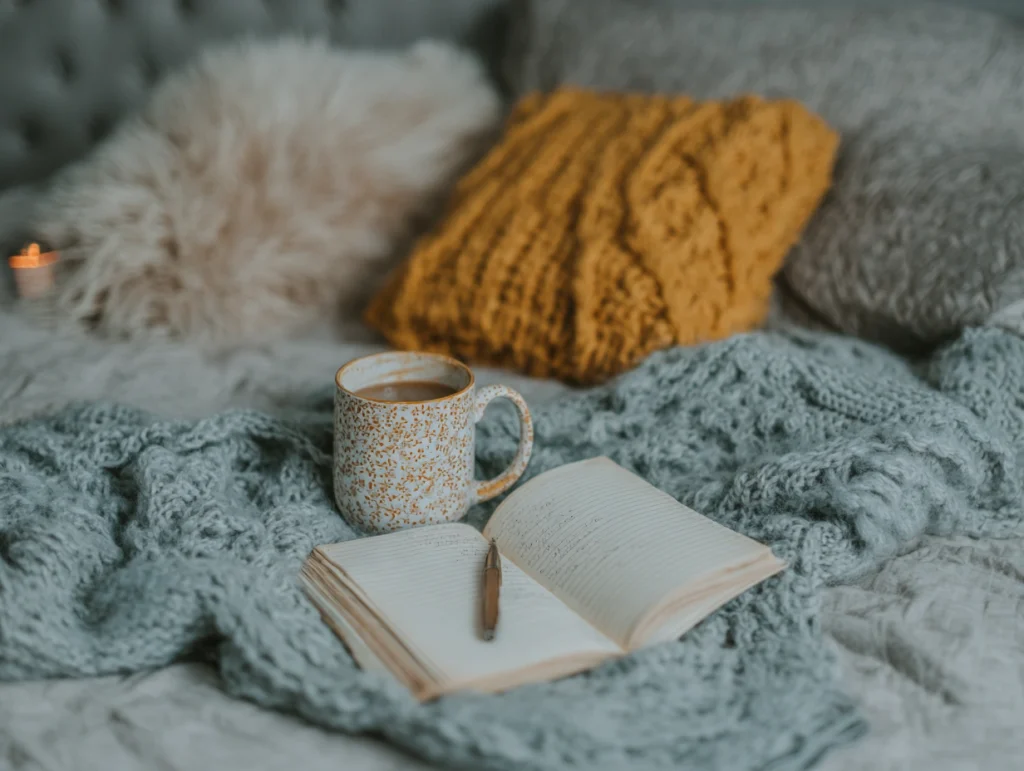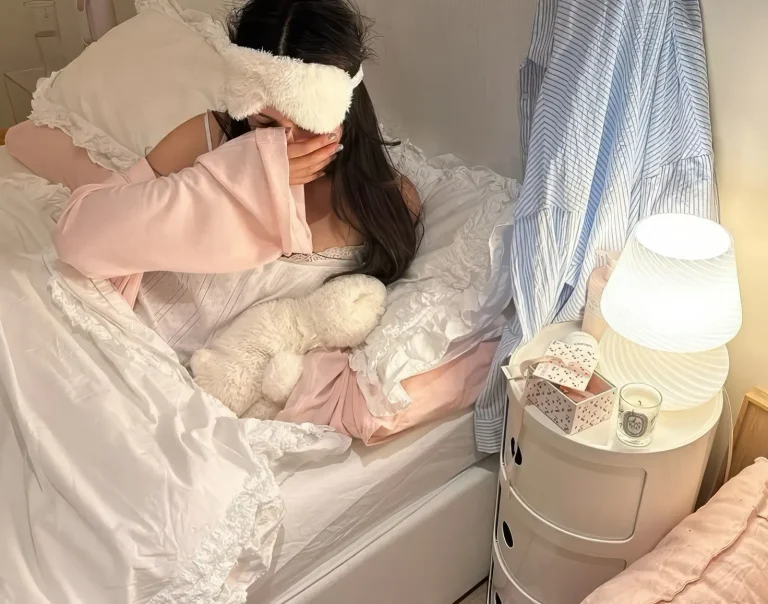The Ultimate Night Routine For Better Sleep
I used to think I didn’t have time for a night routine. My evenings were mostly chaotic — scrolling in bed, eating too late, brushing my teeth in a hurry, then wondering why I couldn’t fall asleep. I told myself I just wasn’t a good sleeper. But over time, I realized it wasn’t about being a “good sleeper” — it was about how I was winding down.
I started experimenting with a proper sleep routine out of desperation. I was tired (literally and emotionally) of feeling groggy and grumpy every morning. And I kept noticing how different I felt on the rare nights when I took care of myself before bed — calmer, more present, and actually excited to sleep.
So I decided to build a night self care routine that actually felt good. Not another strict checklist — just something that helped me unwind and reset. In this post, I’ll share what’s worked for me, what I still struggle with, and how I created a bedtime routine that actually improved my sleep and made my nights feel softer.

1. Unplug Earlier Than You Think You Need To
This is the hardest one — and the most important.
For a long time, I’d stay on my phone right up until I turned off the light. It felt harmless at the time — a little TikTok scroll, a few emails, some Pinterest pinning. But my brain never got the signal to slow down. It’s like I was trying to go from 100 to 0 with no transition.
Now, I try to unplug from screens about an hour before bed. I’m not perfect at it, but even 30 minutes of screen-free time makes a huge difference. I’ll read a physical book, journal a bit, or just tidy up and chat with my partner. The key is doing anything that doesn’t involve blue light and dopamine spikes.
Tip: If total unplugging feels impossible, try “screen dimming” as a first step — switch your phone to grayscale or use blue light filters at least.

2. Create a Mini Wind-Down Ritual
This part surprised me the most — how much comfort a little ritual can bring.
I used to think routines were boring. But now I look forward to my night self care routine because it feels like a small ceremony for myself. I keep it super simple: I dim the lights, light a candle, do my skincare slowly, maybe stretch for five minutes. It’s not fancy — but it sends a clear message to my body: we’re done for the day.
This small ritual helps me shift from “doing” mode to “rest” mode. I try not to rush it. Even something as tiny as washing my face with warm water and taking three deep breaths can change the whole energy of my night.
Mini wind-down ideas:
- Light a candle or use essential oils
- Slow skincare or a gentle face massage
- Five-minute stretch or legs-up-the-wall pose
- Change into soft PJs (not the old T-shirt with holes)
- Write one sentence about your day

3. Rethink “Productive” Evenings
This took me a while to unlearn.
For years, I treated evenings as catch-up time — answering emails, finishing to-do lists, or overplanning tomorrow. I’d be half-working until bedtime, then wondering why my brain couldn’t shut off.
What helped was redefining what I considered a “good night.” It wasn’t about getting more done — it was about letting myself not be productive. I still struggle with this sometimes (guilt creeps in), but I’m learning that rest is productive too. Especially when it leads to better sleep and calmer mornings.
Now, I give myself permission to do slow things in the evening — like coloring, stretching, or even just watching a show with no multitasking. It feels indulgent in the best way.
I now treat 8:30 p.m. onward as “no-performance” time — no goals, no pressure, just being.

4. Try a Gentle Sleep Routine for Your Mind
I always thought my night routine had to be physical — skincare, tea, no phone. But I realized my brain needed a routine too.
When I started feeling anxious at night, I added a mental wind-down: a super short reflection or grounding practice. Nothing deep — just 5 minutes of slowing my thoughts. Here are a few things that help:
- Journaling: I write down 3 things that happened that day, or one thing I’m grateful for. No pressure to make it poetic.
- Worry list: If something’s bugging me, I write it down on a “brain dump” list and tell myself I’ll deal with it tomorrow.
- Meditation or breathing: I use the Insight Timer app or just lie in bed and do 4-7-8 breathing. It’s wild how much it helps.
I started saying one kind thing to myself before sleep — “you did enough today.” Sounds cheesy, but it really works.

5. Make Your Bedroom a Sleep-Friendly Zone
This one gets skipped a lot, but it really matters.
I used to sleep with my laundry piled in the corner and my desk light still on. I didn’t think it mattered — but turns out, it totally does. The environment we sleep in sends all kinds of signals to our brain.
I started treating my bedroom like a little cocoon. Nothing extreme — just small tweaks:
- I put a soft lamp next to my bed and turned off overhead lights earlier
- I cleared off the clutter near my bed (no to-do lists in sight!)
- I started using white noise, especially on stressful weeks
- I made my bed feel nicer with a better pillow and softer sheets
The result? I want to go to bed now. It feels like a place where nothing else needs to happen — no work, no pressure, just rest.

6. Keep Your Sleep Routine Flexible, Not Rigid
This is where I almost gave up — trying to stick to a “perfect” night routine.
At first, I made a long checklist and beat myself up when I didn’t follow it. But sleep isn’t about perfection. Some nights I do my full bedtime routine. Other nights I skip half of it and crash. That’s okay.
The goal isn’t to check every box — it’s to build patterns that help most of the time. If one thing helps you sleep better (like journaling, or no phone after 9), that alone is worth doing.
What matters is building a sense of safety and softness before sleep — in a way that feels realistic for your life.
On weekends, my routine gets way looser. I just make sure I wash my face and don’t fall asleep with my phone. That’s a win.

Final Thoughts: My Night Routine Is a Work in Progress
Creating a bedtime routine isn’t about becoming a sleep guru. It’s about giving yourself the care you probably didn’t know you needed. For me, that meant slowing down, softening my nights, and being a little more present with myself.
Some nights I still struggle. I scroll too late or skip my wind-down. But most nights, I’ve built habits that help me feel safe, calm, and ready to sleep — and that’s honestly changed my mornings too.
If you’re someone who’s tired of feeling tired, try building your own gentle night routine. Start small. Pick one thing that makes you feel good, and do it most nights. That alone can make a huge difference.
What’s one tiny thing you could add to your night that helps you feel more human and less wired? Try it tonight — just for you.






